Next month’s polls will be the second time the general election is being held during the monsoon season. The last time it was held in November was in 1999. At that time, Prime Minister Mahathir Mohamad deliberately called an early election to coincide with the rainy season to discourage Malays, angered by the sacking of deputy premier Anwar Ibrahim, from going to the polls.
This time, Wannabe Prime Minister Zahid Hamidi forced lame duck PM Ismail Sabri to call an early election during the monsoon season to discourage Malays, Chinese, Indians and everyone – except UMNO, MCA and MIC hardcore supporters – from going to the polls. While Mahathir won the 1999 General Election, the same dirty tactic might backfire in the face of both Zahid & Sabri.
In 1999, Mahathir was saved by Chinese voters spooked by the prospect of a repeat of May 13, 1969 racial riots. For the first time, the United Malays National Organization (UMNO) had to rely on its main coalition partners, the Malaysian Chinese Association (MCA) and the Malaysian Indian Congress (MIC), to retain the two-thirds majority in the Parliament.
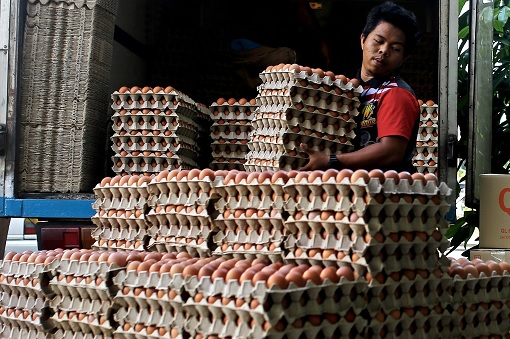
The 1999 national election saw UMNO gained less than half (50%) of Malay votes – its traditional vote bank. It was Mahathir’s last election. He dramatically dropped a political bombshell halfway into his closing speech during the 2002 UMNO general assembly – announcing that he was immediately resigning all his party and government positions, ending 21 years in office.
Now, not only 90% of Chinese votes are gone, the Malay votes are split into many ways – UMNO, Bersatu, PAS, PKR, Pejuang and whatnot. In fact, UMNO-led Barisan Nasional coalition captured only 33.77% popular votes in the last 2018 General Election, compared to 56.53% votes won under Mahathir leadership in 1999. So, who is Zahid to arrogantly say UMNO can win big this time?
For the first time, UMNO, under the leadership of Zahid (and turtle-egg Sabri) has hastily called a snap election at a time when the country was struggling with a shortage of chicken egg. Why is this even an issue? That’s because four main categories of essential foods in Malaysia are chicken, beef and egg; fish and seafood; vegetables and fruits. This is the first time UMNO goes to the polls without fixing the bread and butter issue.

Of all the 4 categories of essential foods, chicken egg is the simplest problem to solve. Yet, the problem has been dragging for months since early of the year. Chicken and eggs, the primary source of protein in the country, plunged into “food crisis” partly by the Ukraine War. Ukraine is a major exporter of corn and grains that are key components of chicken feed.
The food crisis was so serious that Prime Minister Ismail Sabri Yaakob announced that Malaysia – beginning June 1 – will ban exports of 3.6 million chickens a month to neighbouring Singapore until domestic prices and production stabilizes. The government also abolished import permits for chicken and other foods to boost food supply and curb prices amid public anger.
But the shortage and skyrocketing price of chicken were more complicated than Ukraine War. Cartels – linked to corrupt UMNO politicians and monopoly disguised under “Ketuanan Melayu”, the ideology of Malay supremacy espoused by UMNO over 60 years – are controlling the price and supply of chicken. Sabri government, despite knowing the existence of such cartels, pretended to investigate.
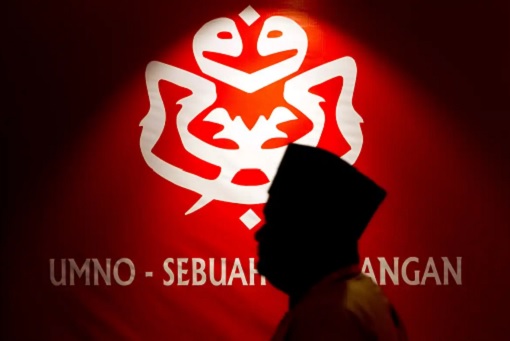
The chicken export ban was lifted from October 11, not because the structural problem has been fixed, but largely because the poultry industry warned that it could suffer losses if the lifting of the export ban is delayed – losing out to competitors such as Indonesia. Of course, the corrupt and incompetent government has conveniently forgotten about cartels till today.
The un-elected backdoor government thought by banning chicken exports, it would create oversupply and eventually the price of chicken will go down. It has no idea that the cost of breeding chickens does not change, made worse by plunging local currency – Ringgit. The ceiling price for chicken, set at RM9.40 per kg in June, frequently ignored by sellers as enforcement authorities closed one eye.
While it appeared the shortage of chicken (not the price though) has been temporarily solved, the same cannot be said about chicken eggs. Despite subsidies for chicken breeders and chicken egg producers have been extended from October until December this year, at a rate of RM0.80 per kilogramme (kg) for chickens and RM0.08 per egg, the shortage of eggs continues.
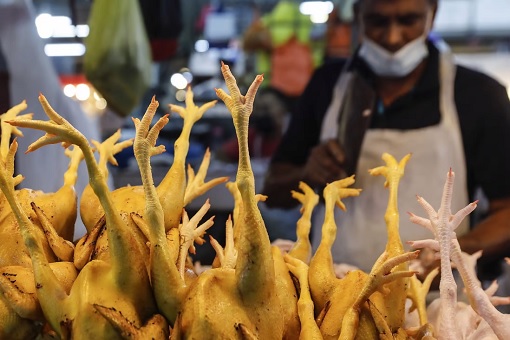
The retail ceiling prices of chicken eggs are set at RM0.45 (Grade-A), RM0.43 (Grade-B) and RM0.41 (Grade-C) each in Peninsular Malaysia, with the government subsidizing 3 sen per egg. However, as early as July, the livestock farmers’ federation asked the government to provide a subsidy of 8 sen per chicken egg. In October, the government finally agreed to the request.
Still, the shortage of chicken eggs persists. While the ceiling price was RM0.41 (Grade-C), the average cost of producing an egg climbed to RM0.51 sen. Meaning the egg producers were making 10 sen loss per egg even before started selling. Instead of making a loss (the chicken still needs feeding), the chickens were slaughtered before even the birds reach maturity.
Some chicken egg producers have switched to producing more profitable Omega-grade or “kampung eggs”, which are not subject to price controls. Therefore, only premium eggs are available most of the time at supermarkets. Even then, shelves stocking eggs at sundry shops are often empty as even premium eggs were snapped up due to serious shortage of normal eggs.
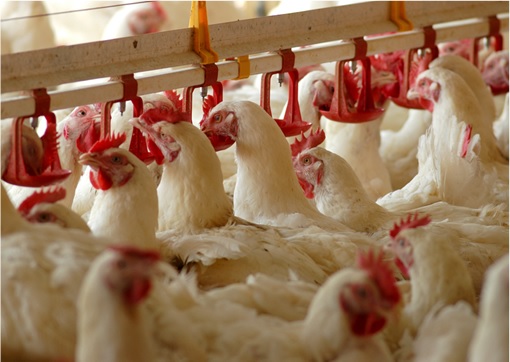
Yesterday (Nov 1), the government was forced to increase the subsidy of chicken eggs to 10 sen from 8 sen per egg. This will cost extra RM20 million in subsidy. Special Task Force on Jihad against Inflation chairman Annuar Musa said – “With the increase in subsidies, it is estimated that subsidies for chickens and eggs in October to December will amount to about RM600 million”.
The burning question is why the government did not pro-actively increase the additional 2 sen subsidy per egg before dissolving the Parliament on Oct 10? After all, it’s only an extra RM20 million in subsidy. It’s foolish to leave the shortage of eggs unsolved, providing ammunition for the opposition to attack the government. The short and long answer – national coffers run out of money.
According to Finance Minister Tengku Zafrul, Malaysia’s subsidy bill is expected to hit RM80 billion this year – the highest in history. True, additional revenues from Petronas dividends, royalties and petroleum-related products, as well as oil palm-related products could help subsidize the bill. But it’s also true that leakages in public expenditure are even bigger problems.
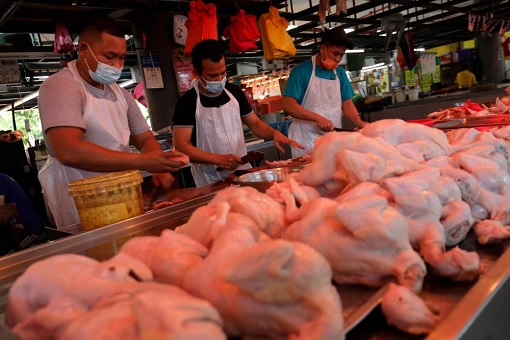
The solution is to allow the market forces determine the prices of chicken and eggs. The only reason the government rejects the floating of the prices of eggs is because of the upcoming 15th General Election. If UMNO wins and forms the new government after polling day on Nov 19, not only the prices of chicken and eggs will skyrocket, the prices of other goods and services will hit the roof too.
When the government imposed the ban on chicken export in June, the currency exchange rate was RM4.40 to one U.S. dollar. Today, it’s RM4.74 to the greenback. Essentially, the government is fighting a losing battle in subsidizing chicken eggs. If egg prices are floated, they will surge by at least 12 sen, meaning the prices would hit RM0.57 (Grade-A), RM0.55 (Grade-B) and RM0.53 (Grade-C).
Like it or not, an UMNO-Barisan Nasional government will cut subsidies immediately after winning the election. There will be definitely increase in petrol price, electricity rate, property tax, assessment rate and whatnot. Only by reducing the burden of subsidies can “new projects” get funding to enrich corrupt UMNO politicians. They are hungry for projects since the defeat in the 2018 General Election.

In truth, inflation would have exploded if not for the government’s instruction to artificially suppress the inflation by slowly increasing the prices of goods in multiple stages. If you talk to business owners or suppliers, they will tell you that the backdoor government imposed price controls to avoid a sharp spike in prices in order to make inflation rate looks low.
The main problem is the weak Ringgit, which keeps sliding against the U.S. dollar, making imported feed raw material become more expensive. Even with the latest increase in subsidy, the shortage of chicken eggs will not disappear overnight. The number of farms in the country has declined from more than 1,000 in earlier years to just 300, and now only 170 farms are still operating.
Egg production is not like a factory producing iPhone. A chicken starts laying eggs only after four to five months of rearing. Because chickens had been slaughtered, farmers need to buy chicks. But if they think Ringgit will continue to weaken and the business is still not profitable, there’s no reason to rush. According to Selangor Livestock Farmers’ Association, the shortage of eggs could take up to 18 months to ease.
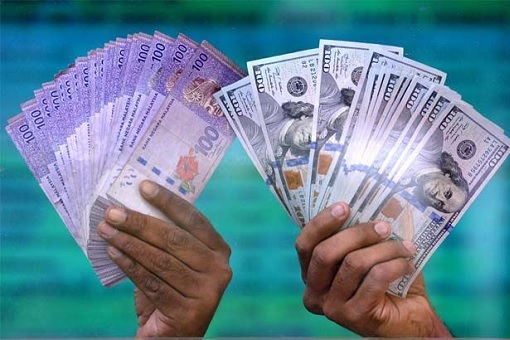 Other Articles That May Interest You …
Other Articles That May Interest You …
- BN Govt’s Special Gifts For The People – RM100 Cash With Conditions To Hike Prices Of Cooking Oil, Chicken & Egg, Electricity
- The Return Of GST – PM Ismail Sabri’s Audemars Piguet Watch Worth RM292,553 Can Subsidize Thousands Of Chicken
- Roti Canai & Teh Tarik To Cost More Next Month – Here’s Why The Cost Of Living Will Be Worse If Najib’s GST Is Still Here
- Chicken Crisis – Clueless PM Sabri Should Spend More Time Fixing Food Crisis Than Whining About Malay Language
- Too Little Too Late – Bank Negara Raises Interest Rate To Rescue Tumbling Ringgit Under Pretext Of Fighting Inflation
- Ringgit Hits 2-Year Low Of 4.36 Despite High Oil Price – How UMNO Leaders Destroy The Currency In The Last 25 Years
- 7 New Taxes That Najib & UMNO Plan To Introduce After They Win The 15th General Election
- Food Prices Skyrocket – The Return Of Monopoly & Cartel Run By Rich UMNO Malay Elites To Profit From The People
- From 30% To 51% Shares – Endless Racist Policies & Daylight Robberies Why Local Talents & Companies Fled Elsewhere
- Driving Investors Away – Prolonging Covid-19 Pandemic In Malaysia Threatens Global Semiconductor Supply Chain
- Congrats Muhyiddin! – Here Are The Letters From German, Japanese And Dutch Investors Threatening To Pull Out
- The Worst Is Yet To Come – Muhyiddin’s Mishandling Of Covid-19 & Mismanagement Of Economy Is Worse Than Trump

|
|
November 2nd, 2022 by financetwitter
|


|

|

|

|

|

|




























Bro… which govt won’t raise chicken, eggs etc after election.
Everyone knows that this is simply controlled for election purposes
Ph or Pn will as well if they r elected.